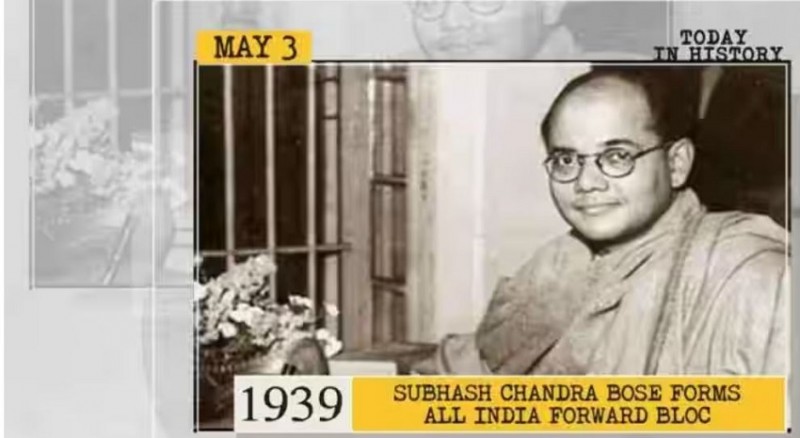
On May 3, 1939, amidst the fervor of India's struggle for independence, Subhash Chandra Bose made a historic move by founding the All India Forward Bloc. This seminal event marked a significant turning point in India's fight against British colonial rule, as Bose sought to inject new energy and strategies into the nationalist movement.
Dissatisfied with the prevailing tactics and approach of the Indian National Congress, which he felt were not assertive enough in challenging British dominance, Bose took the bold step of forming a new political entity. The All India Forward Bloc was not merely a splinter group but a deliberate attempt to forge a distinct path towards liberation, one that resonated with Bose's vision of a resolute and uncompromising struggle for freedom.
The core objective of the Forward Bloc was clear: to unite progressive forces across the country and mobilize them for a concerted effort towards rapid self-governance. Bose believed that the time had come for India to assert its independence without delay, and he saw the Forward Bloc as a vehicle to galvanize the masses towards this goal.
At its inception, the Forward Bloc attracted a diverse range of members, including socialist thinkers, radical activists, and grassroots leaders disillusioned with the Congress's moderate stance. Bose's charismatic leadership and unwavering commitment to the cause infused the organization with a sense of purpose and urgency.
One of the defining features of the Forward Bloc was its emphasis on direct action and mass mobilization. Bose was not content with mere rhetoric or symbolic gestures; he advocated for active resistance against British rule through strikes, protests, and other forms of nonviolent civil disobedience. This approach distinguished the Forward Bloc from other political movements of the time and earned it a reputation for its boldness and dynamism.
The formation of the Forward Bloc sent shockwaves through the political landscape of colonial India. It represented a challenge to the hegemony of the Congress and forced other nationalist leaders to reckon with Bose's radical vision. While some viewed Bose's actions with skepticism or outright opposition, many others saw in him a beacon of hope and a rallying point for the aspirations of millions of Indians yearning for freedom.
Despite facing numerous challenges and setbacks, including arrests and harassment by the British authorities, Bose remained undeterred in his quest for independence. The Forward Bloc continued to grow in strength and influence, inspiring a new generation of activists and instilling a sense of defiance in the face of oppression.
In the annals of India's struggle for independence, the founding of the All India Forward Bloc stands as a testament to the courage, vision, and determination of Subhash Chandra Bose. It serves as a reminder that the path to liberation is often fraught with obstacles, but it is only through unwavering commitment and collective action that the dream of freedom can be realized. Today, as we commemorate this historic event, let us draw inspiration from Bose's legacy and rededicate ourselves to the pursuit of justice, equality, and self-determination for all.
Celebrating World Press Freedom Day: Advocating for Truth and Safety